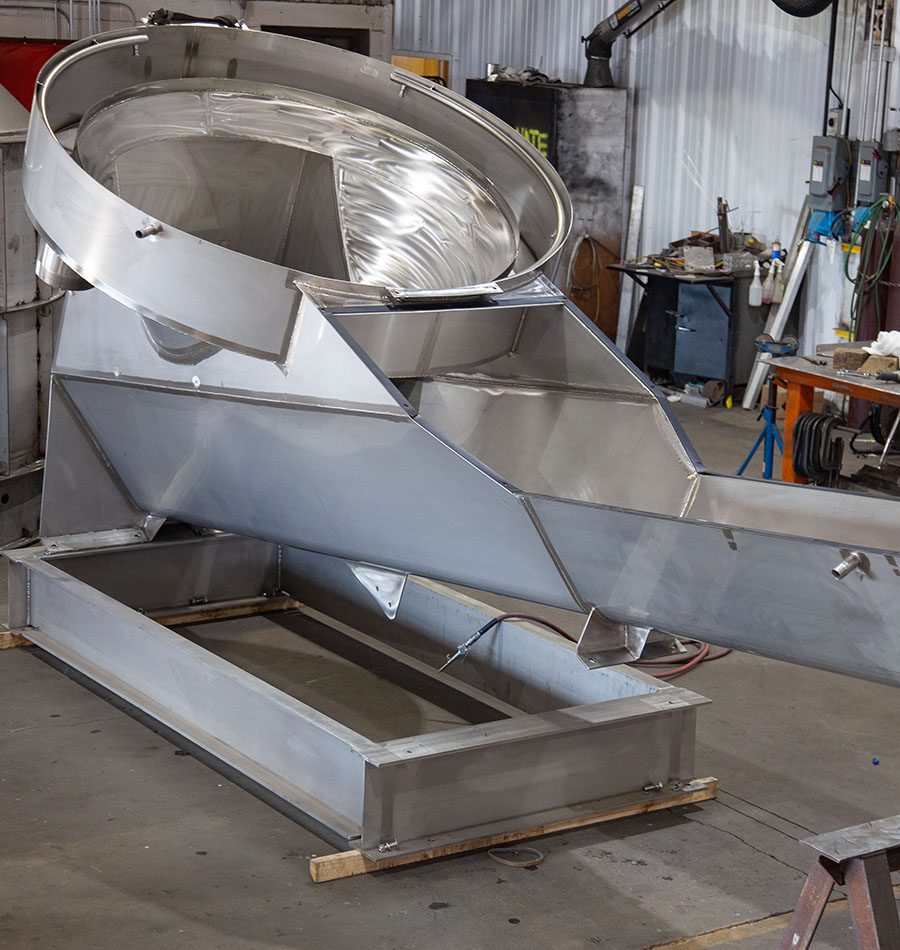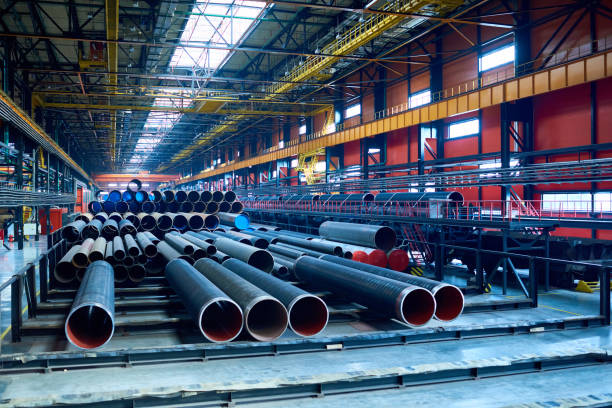The Ultimate Manual on Customized Steel Fabrication Solutions for Structural Projects
In the world of architectural projects, the relevance of customized steel fabrication remedies can not be overstated. From the fundamental understanding of steel construction essentials to the complex process of picking the most suitable materials, every step in this trip plays a critical role in the utmost success of a project.
Comprehending Custom Steel Construction Basics
Looking into the fundamentals of customized steel construction gives understanding into the elaborate process of transforming raw steel into tailored architectural elements. Custom steel construction is a specific production method that includes cutting, shaping, and putting together steel materials to develop special structures according to particular project needs. Comprehending the basics of customized steel construction is important for guaranteeing the effective implementation of structural tasks.
The procedure generally starts with the evaluation of project requirements and layout demands. This initial stage involves thorough planning and collaboration in between fabricators, developers, and engineers to figure out one of the most suitable strategy for fabricating the steel parts. Precision is crucial during the construction procedure, as even small discrepancies can affect the architectural integrity of the last item.
Different strategies, such as cutting, welding, and shaping, are utilized to change raw steel into the preferred architectural elements. Skilled producers make use of sophisticated machinery and devices to make sure accuracy and consistency throughout the manufacture process. Quality assurance procedures are implemented to verify the honesty of the fabricated elements prior to they are set up on-site, making sure compliance with market standards and job specifications.
Picking the Right Steel Materials

Primarily, the sort of architectural job and its particular requirements play a crucial duty in figuring out the most suitable steel products. Variables such as the load-bearing capability, environmental conditions, and desired life-span of the structure will dictate the grade and sort of steel that need to be utilized.
Moreover, the physical properties of the steel, including ductility, weldability, and toughness, must straighten with the project's requirements to assure ideal efficiency and longevity (metal fabrication melbourne). Furthermore, factors to consider such as rust resistance, cost-effectiveness, and availability of the steel products ought to likewise be thought about during the selection procedure
Layout Considerations for Structural Tasks
Architectural jobs require careful attention to develop considerations to make sure both capability and safety are focused on throughout the building and construction process. When it comes to designing structural projects, several essential aspects must be taken right into account to assure the success of the venture. By thoroughly thinking about these facets during the design phase, engineers and engineers can ensure the structural task's success from perception to conclusion.
Enhancing Manufacture Processes for Performance

Furthermore, carrying out lean manufacturing principles can significantly boost effectiveness in steel manufacture. By minimizing waste, enhancing operations, and boosting communication between various groups included in the fabrication procedure, projects can be finished a lot more swiftly and with better requirements.
Moreover, developing an efficient manufacturing schedule and workflow can assist in prioritizing tasks, designating sources properly, and meeting project due dates immediately. By having a clear strategy in area and regularly keeping track of development, any type of prospective bottlenecks or hold-ups can be identified and resolved quickly, making certain smooth and reliable construction processes for structural projects.
Quality Assurance and Task Monitoring in Steel Manufacture
To make certain the effective execution of steel construction projects, precise high quality control actions and effective job administration methods are important elements in maintaining precision and meeting customer assumptions. Quality control in steel manufacture entails extensive inspections at numerous phases of the manufacture process to confirm compliance with project specs and market criteria. This includes material screening, dimensional checks, and weld assessments to ensure architectural honesty and safety.
Project management plays a crucial duty in working with the numerous aspects of steel fabrication tasks, such as scheduling, source allotment, and interaction among group participants. A distinct task strategy with clear goals, milestones, and timelines assists to monitor development and address any kind of potential concerns proactively. Effective interaction between all stakeholders, including customers, designers, contractors, and producers, is important for ensuring that the task progresses smoothly and satisfies the wanted quality requirements.
Final Thought
Finally, customized steel manufacture plays a vital function in structural tasks by offering tailored remedies using the appropriate products and style factors to consider. Performance in fabrication processes, high quality control, and effective task management are vital for effective results. By comprehending the essentials of custom-made steel fabrication and click here to find out more carrying out streamlined procedures, task teams can provide resilient and top quality structures that meet the specific demands of their customers.
Personalized steel manufacture is a specific manufacturing method that entails cutting, shaping, and putting together steel materials to create unique frameworks according to particular job needs.To ensure the effective implementation of steel construction projects, meticulous top quality control steps and reliable job monitoring practices are vital parts in preserving precision and meeting customer assumptions. have a peek at these guys Quality control in steel manufacture involves rigorous inspections at different stages of the construction procedure to validate compliance with project specifications and market requirements (steel fixing).Job monitoring plays a crucial role in coordinating the various facets of steel fabrication tasks, such as scheduling, source allotment, and interaction among team members.In final thought, customized steel fabrication plays a vital role in architectural jobs by offering tailored solutions using the ideal materials and style factors to consider